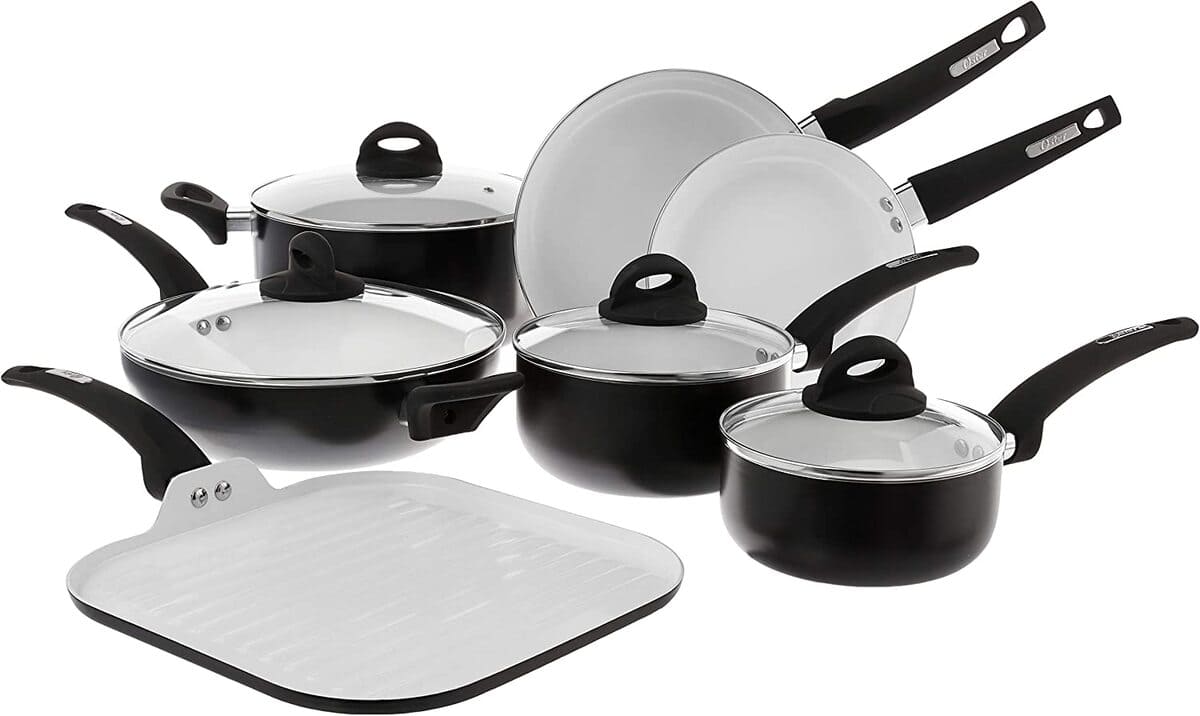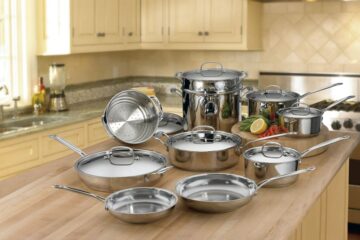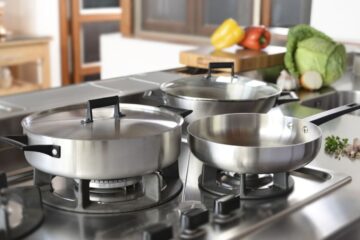Aluminum cookware has been a popular choice for many home cooks due to its affordability, durability, and non-stick properties. However, there has been some concern regarding the safety of using aluminum cookware, particularly when it comes to high-heat cooking. This has led to questions about whether aluminum cookware is banned in Europe.
According to recent search results, aluminum cookware is indeed banned in six European countries. This ban is due to studies that have found that when aluminum is heated to high temperatures, it can melt and leach chemicals into the food being cooked in it. This can potentially lead to health issues such as stomach ulcers and gastrointestinal troubles. While aluminum cookware is not banned in all European countries, the concerns surrounding its safety have led to some restrictions on its use.
What is Aluminum Cookware?
Aluminum cookware is a type of cookware made from aluminum metal that is used for cooking food. It is a popular choice because of its affordability, lightweight, and excellent heat conductivity. Aluminum cookware can be found in many forms, including pots, pans, baking sheets, and even utensils.
Most aluminum cookware sold in the United States is coated with a nonstick surface, making it easy to clean and preventing food from sticking to the surface. However, some aluminum cookware is uncoated, which can cause food to stick and may require more oil or butter when cooking.
While aluminum cookware is generally considered safe to use, there are concerns about the potential health risks associated with using aluminum cookware. When heated at high temperatures, aluminum can produce harmful hydroxide, which can cause several dangerous diseases associated with the stomach and gastrointestinal parts of the body.
To address these concerns, some countries, including certain European countries, have banned the use of aluminum cookware. However, it is important to note that aluminum cookware is not banned in all of Europe and remains a safe and popular option for cookware in many countries.
Why is Aluminum Cookware Banned in Europe?
Health Risks of Aluminum Cookware
Aluminum cookware has been found to be potentially harmful to human health. When heated at high temperatures, aluminum can produce harmful hydroxide, which can cause several dangerous diseases associated with the stomach and gastrointestinal parts of the body. Exposure to aluminum has also been linked to Alzheimer’s disease, dementia, and autism.
Regulations on Aluminum Cookware in Europe
Several European countries have banned the sale of aluminum cookware and utensils due to the potential health risks posed by the metal. However, aluminum cookware is not banned in all European countries. For example, in France, the use of aluminum cookware is not prohibited, but the European Union has found that many commercial aluminum cooking utensils contain unsafe amounts of aluminum.
To address these concerns, the European Union has established regulations on the manufacturing of aluminum cookware. Manufacturers are required to limit the amount of aluminum used in their products and ensure that any aluminum core is sandwiched between two protective layers of stainless steel. These regulations aim to reduce the risk of exposure to harmful levels of aluminum in cookware.
Alternatives to Aluminum Cookware
When it comes to cookware, there are several alternatives to aluminum that are popular in Europe. These include stainless steel, cast iron, and ceramic cookware. Each of these materials has its own unique benefits and drawbacks, so it’s important to choose the right one for your needs.
Stainless Steel Cookware
Stainless steel is a popular alternative to aluminum cookware because it is durable, easy to clean, and doesn’t react with acidic foods. It is also a good conductor of heat, making it a great choice for cooking a wide variety of dishes. Some of the benefits of stainless steel cookware include:
- Durable and long-lasting
- Non-reactive with acidic foods
- Easy to clean
- Good heat conductor
However, stainless steel cookware can be more expensive than aluminum cookware, and it may not heat as evenly as some other materials. Additionally, stainless steel cookware can be heavier than aluminum, which may make it more difficult to handle.
Cast Iron Cookware
Cast iron cookware is another popular alternative to aluminum. It is known for its durability and ability to retain heat, making it a great choice for cooking stews, soups, and other slow-cooked dishes. Some of the benefits of cast iron cookware include:
- Durable and long-lasting
- Retains heat well
- Can be used on the stovetop or in the oven
- Adds iron to your diet
However, cast iron cookware can be heavy and difficult to handle, and it requires some maintenance to keep it in good condition. It also takes longer to heat up than some other materials, which may not be ideal for quick-cooking dishes.
Ceramic Cookware
Ceramic cookware is a newer alternative to aluminum and has become increasingly popular in recent years. It is known for its non-stick properties and ability to distribute heat evenly. Some of the benefits of ceramic cookware include:
- Non-stick surface
- Even heat distribution
- Easy to clean
- Can be used on the stovetop or in the oven
However, ceramic cookware can be more expensive than other materials, and it may not be as durable as some other options. It also requires special care to avoid chipping or cracking.
Conclusion
In conclusion, aluminum cookware is banned in six European countries due to the potential health risks associated with its use. Recent studies have shown that when aluminum is heated to high temperatures, it can melt and leach chemicals into food, which can cause several dangerous diseases associated with the stomach and gastrointestinal parts of the body.
Although aluminum cookware is still widely used in many other countries, it is important to be aware of the potential risks associated with its use. There are several other options available for cookware, including stainless steel, cast iron, and ceramic, that do not pose the same health risks.
When choosing cookware, it is important to consider personal preferences and specific cooking needs. While aluminum cookware may be inexpensive and easy to clean, it may not be the best option for everyone. It is always a good idea to do research and read reviews before making a purchase to ensure that the cookware you choose is safe and effective.


